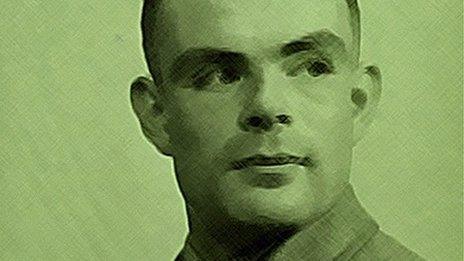What Alan Turing £50 notes mean to the LGBT community
- Published
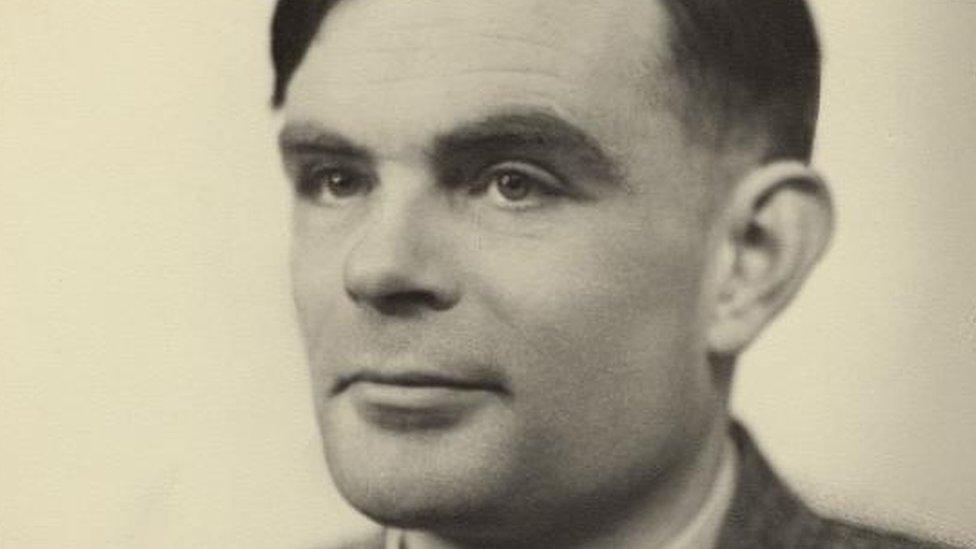
Alan Turing was posthumously pardoned in 2013
Alan Turing was a computer pioneer, maths genius and codebreaker whose influence encompassed wars, modern computing and the lives of millions of gay men.
He was recognised for his genius but, like many men until 1967, he lived as a "criminal" simply for being gay.
A change in the law came too late for Turing whose suicide in 1954 followed a conviction for having a relationship with a man.
Turing's appearance on the new £50 note has been welcomed by parts of the LGBT+ community as a symbol of a country facing up to the way gay men were persecuted.
'Witch hunt'
In 1952, Turing was convicted of gross indecency after being arrested for having an affair with a 19-year-old Manchester man.
The conviction meant he lost his security clearance and had to stop the code-cracking work that had proved vital to the Allies in World War Two.
Instead of going to prison, Turing was chemically castrated.
He died from cyanide poisoning two years later and it was ruled at his inquest that he had committed suicide.
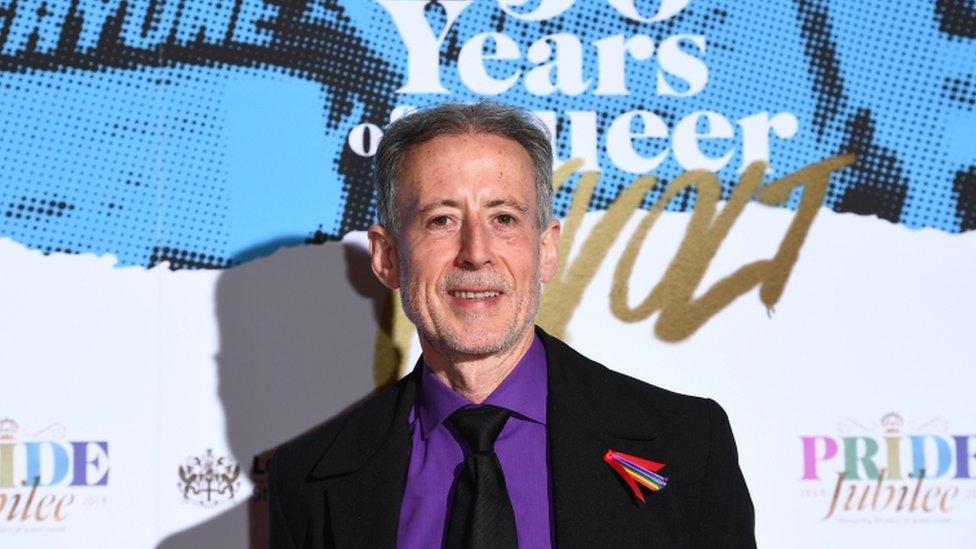
Peter Tatchell the new £50 notes were a sign that LGBT people were accepted "at the highest level of our society"
Prominent gay rights spokesman Peter Tatchell said Turing's treatment was symbolic of a "witch hunt" of gay and bisexual men, which led to 1,000 being imprisoned at any one time during the 1950s.
He was among those who have welcomed Turing's appearance on banknotes from 2021.
"It's a real milestone that signifies the degree of acceptance of LGBT people at the highest level of our society," said Mr Tatchell.
"Alan Turing is not only an icon for the LGBT community, he is an iconic figure for the whole of British society."

Turing created a code-breaking machines which helped end World War Two
Turing was posthumously granted a pardon in 2013 and, after a long campaign, the same pardon was extended in 2016 to all men who had been convicted.
Among those who led the fight for their names to be cleared was Liberal Democrat peer Lord Sharkey, who says the new £50 notes will "serve as a reminder of the effects of bigotry and ignorance".
"It's hard to rejoice when the government has been so slow and reluctant to clear Turing and other men but this is a signal that we are embracing him as a national treasure," said Lord Sharkey.
The former Manchester Withington MP John Leech tabled an Early Day Motion, external calling for Turing to be pardoned in January 2012.
"This is the culmination of righting the unjust way Alan Turing and many thousands of other men were treated for decades," he said.
"He is an important figure for a lot of gay men because his pardon paved the way for convictions to be overturned."
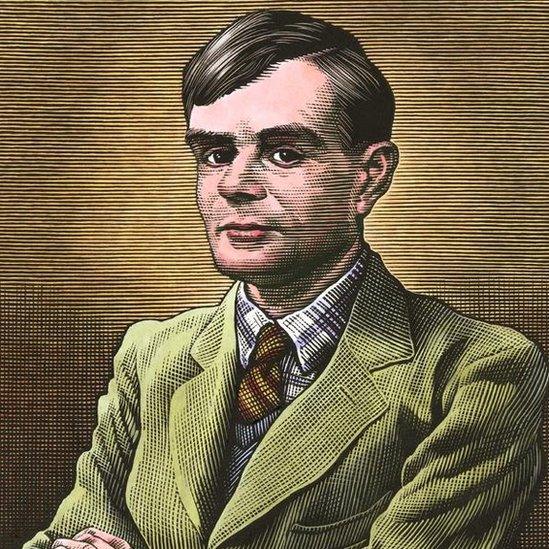
Turing's death in 1954 came two years after he was arrested for being gay
Mark Fletcher, the chief executive of Manchester Pride, said Turing was an "icon for LGBT+ people" and described his inclusion on the banknotes as a "great step forward".
"Alan Turing represents so much of what we fight for and how far we still have to travel before we are living in a truly inclusive world," he said.
"It's only right his legacy is honoured by those who know and respect his work and brought forward to help educate those who may not be aware of the significant impact he had on society and the way we live today.
"And, equally as important, how he was treated for simply being himself."
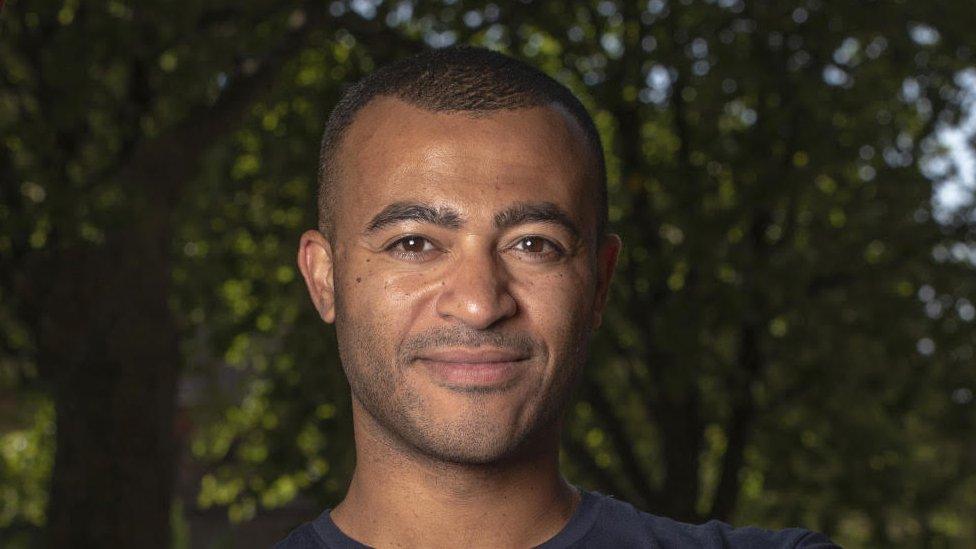
Manchester Pride chief executive Mark Fletcher said Turing was "an icon"
However, some campaigners remain angry about the persecution of gay and bisexual men in the UK until 1967.
The Manchester-based LGBT Foundation was formed in 1975 to help men come out after being gay was decriminalised.
Its communications coordinator Joe Nellist said: "As an LGBT+ pioneer and role model, it's crucial that we have visible recognition of figures like Alan Turing.
"At the same time, it's important to remember that it's less than three years since the government extended a pardon to all people who were criminalised.
"There are still LGBT+ people over the age of 50 who are dealing with the devastating legacy it has left.
"Nothing can ever right the way they were treated."
Related topics
- Published15 July 2019
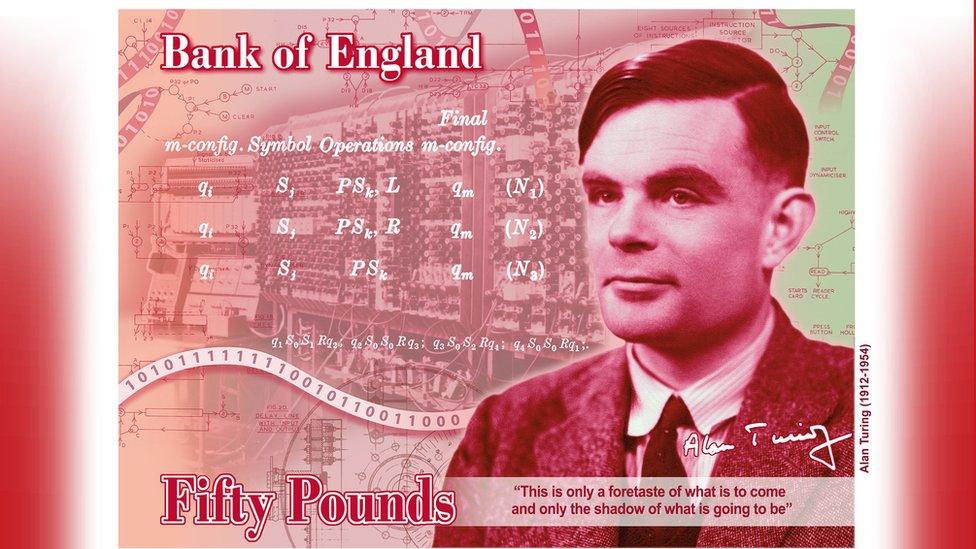
- Published25 June 2019

- Published24 December 2013
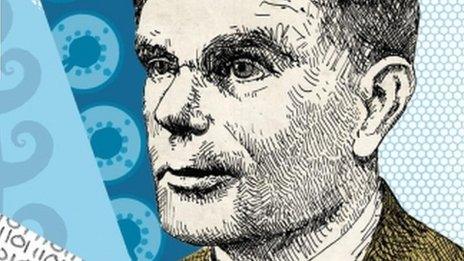
- Published22 June 2012

- Published19 June 2012
